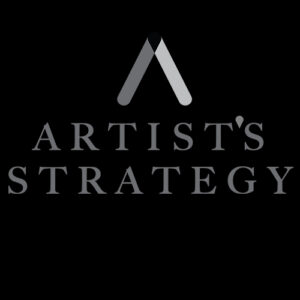
If you work with us, you have undoubtedly heard me talk about the vital importance of communicating and managing expectations. It’s a concept that was first introduced to me by a now colleague and then board member in reference to the cultivation and retention of an audience when I was running my theatre company.
Even though we were called “No Rules Theatre Company”, we still needed to be able to clearly communicate who we were and manage the expectations of our audience goers. The concept has stuck with me in a much larger way and I have identified it as a key opportunity for growth amongst most creative entrepreneurs.
Communicating and managing expectations are two slightly yet vastly different topics so let’s start by exploring the necessary art of communication as it pertains to our businesses first.
Artists tend to get passes because we’re “creative beings”. A lot of folks don’t seem to believe we have what it takes to operate in a clear, cogent way. Unfortunately, lack of communication seems to be a prime example that often proves their point. While I could probably write a novel on the importance of communication, let’s identify a few.
It could be that your potential lack of communication is centric to a singular mode. For example, if you know me, you know I’m NOT the best texter. I have had to understand why (it’s a personal, informal, social outlet for me) and actively let people know: “FYI – if this is professionally related, please shoot me an e-mail. Texts often get lost in the shuffle of the day.”
Whether it’s been my agents, directors, colleagues, donors or fans, timely communication has helped me avoid novice pitfalls and, to be honest, I’m still learning about its importance to this day.
If you identify as a “poor communicator”, first understand what modes of communication work best for you (phone, Facebook, e-mail, in person, etc.) and maybe make that clear to those you’re working with. There will always be room for compromise but at least you would have communicated and let your colleagues know that you do respect their time as much as you would expect them to respect yours.
Secondly, I would consider trying to understand what’s at the root of struggling with open communication. Are you too busy? Are you uncomfortable? Are you scared? Are you disengaged? The answer could lead to some helpful discoveries. Remember, we can easily identify our actual priorities…
If you are someone who has a tendency to avoid actively communicating with those who are trying to communicate with you, get work for you or help you in one way or another, fix it. Now. It could be a game changer for your future.
More on the importance of managing expectations soon. In the meantime, I’ll let you get back to those missed e-mails, calls and texts…
Also by Artist’s Strategy:
Freelancers: How Setting Office Hours Can Make You More Productive


Artist's Strategy offers artists the opportunity to strategize and create tactical next steps towards a successful, fulfilling career. Based on tested business principles, Artist's Strategy helps you design a tangible path towards a sustainable future. Incorporating and using the basic tenets of a healthy business, we will help you set a one, three or five-year-plan that will work for you and keep you on track to seeing real results. With Artist's Strategy, you will work alongside founder Joshua Morgan to identify the strengths and opportunities of your business and learn more about how to stabilize and grow. How long and how frequently you work with Artist's Strategy depends on your individual needs and resources. Contact us to discuss a plan that could work for you.
Read Full Profile© 2021 TheatreArtLife. All rights reserved.

Thank you so much for reading, but you have now reached your free article limit for this month.
Our contributors are currently writing more articles for you to enjoy.
To keep reading, all you have to do is become a subscriber and then you can read unlimited articles anytime.
Your investment will help us continue to ignite connections across the globe in live entertainment and build this community for industry professionals.